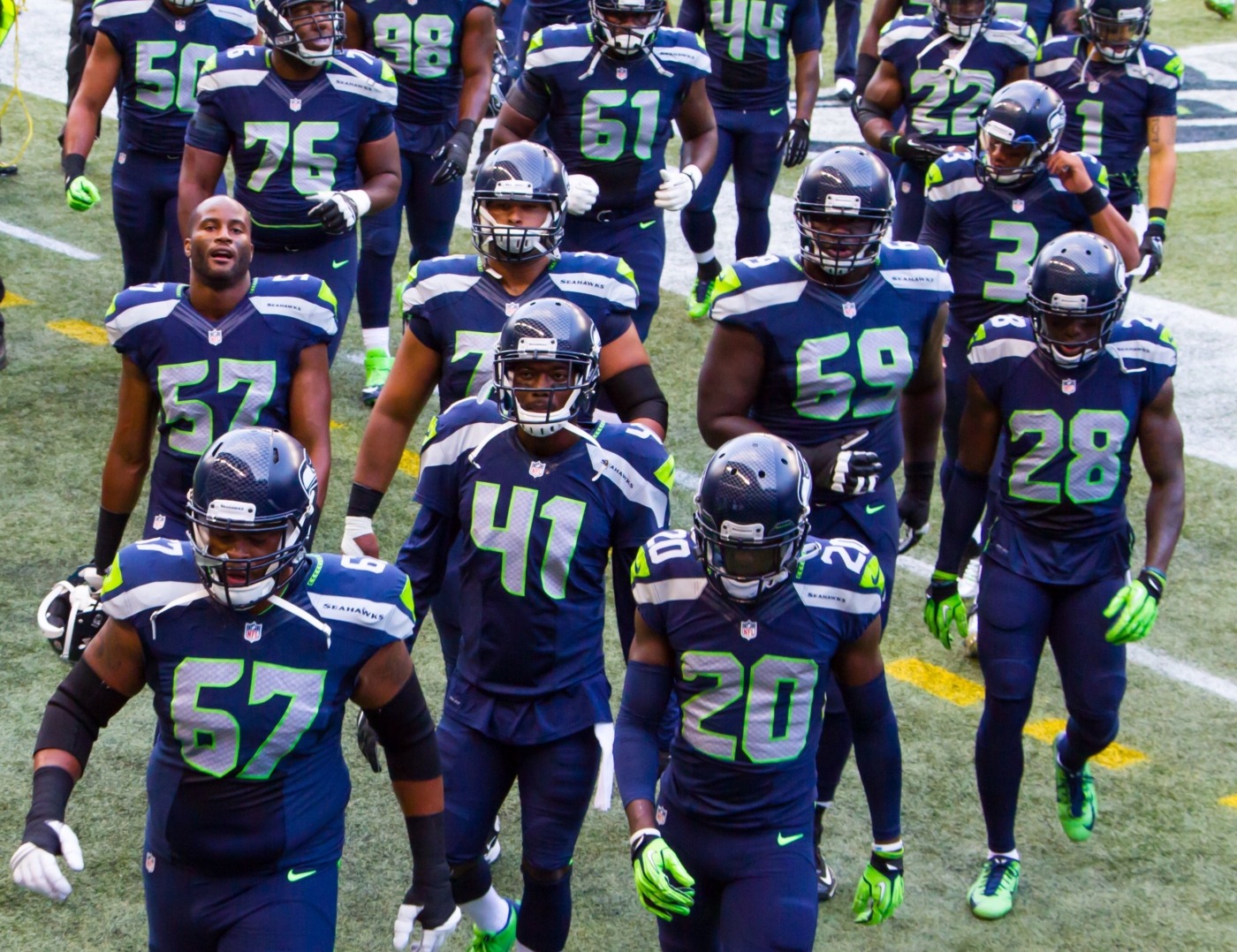Earl Thomas has shown NFL players deserve more guarantees
Earl Thomas could not have provided a clearer display of why fellow player Le’Veon Bell has refused to play a single down so far this season. Arguably the best free safety in the league when fit, Earl Thomas refused to attend both optional and compulsory Seahawks training camps this summer. He hoped that his holdout would lead to a contract extension, with his current 4-year deal worth $40 million (the highest for a safety at the time of signing), coming to an end this year. In an op-ed for the Players’ Tribune, Thomas asked the Seahawks to offer him an extension or to trade him to a team that wants him to be a part of the team’s future.
Thomas is now likely to become the final member of the dominant Legion of Boom to leave the Seahawks
However, when neither of these options materialized, Thomas agreed to return to team activities for their first game of the 2018 season. Taking to Instagram to make his feelings clear, Thomas posted the caption “the disrespect has been well noted and will not be forgotten”. Unfortunately, Thomas is now likely to become the final member of the dominant Legion of Boom to leave the Seahawks, after breaking his leg against the Cardinals in Week 4. As he was stretchered off during the 3rd Quarter, Thomas turned to the sidelines and showed them the bird.
This issue goes much deeper than Thomas himself, though. It raises important questions about the structure of the NFL in regard to contracts. For example: should contracts be fully guaranteed like in the MLB Series? It also questions safety issues that underpin the NFL, like whether playing is worth the risk of life threatening issues such as Chronic Traumatic Encephalopathy (CTE).
If players want to risk their own body to play a game that they and many others love, then let them
Firstly, the arguments for fully guaranteed contracts are clear: the average NFL career span- according to the NFL Players Association- is just 3.3 years; the players don’t get paid whilst selling out massive stadiums for their college team; and only the best players get paid in the millions. One small injury could end a player’s career instantly, with little to no money to show for their performances over the last 3 or 4 years. If a player stayed in college and completed their degree before declaring for the draft, there may be other job opportunities for them, linked to their major. For many, though, back-up career options and qualifications are limited and there is little support for these players, as they struggle to fit back into society and find normal jobs.
Furthermore, the issue surrounding the safety of the NFL has received increasing scrutiny in recent years, with the rise in knowledge around CTE and the symptoms it leads to, such as depression, irritability, anxiety, headaches, and memory problems. John Urschel quit playing for the Ravens last year, saying that playing in the NFL no longer ‘adds up’. Consequently, new rules have been introduced by the NFL that aim to reduce the risk of CTE and make the game safer, such as the adaptations made to the leading-with-helmet tackling rule. Players can now be ejected for personal fouls if they are seen to lead intentionally with the helmet. If caught doing so, players can be fined. For example, Kareem Hunt was fined $26,000 for lowering his helmet during his Week 4 game.
Where do we go from here? Many argue that American Football is a dangerous game which should be ‘cooled’ down to make it safer for the players. I don’t agree. If players want to risk their own body to play a game that they and many others love, then let them. It is not down to spectators or front office officials to dictate whether the game should be played or not for safety reasons. As long as enough awareness is raised so that all players know the risks, then the decision about whether they want to play or not should rest solely on them. The contract situation is a lot more difficult to solve, particularly in a salary-capped league. However, I feel that not only should players be guaranteed larger percentages of their contracts, but they should also be remunerated for their performances in college. Until then, it is completely understandable that NFL players look to protect their bodies when vying for long-term security.

Comments
Comments are closed here.